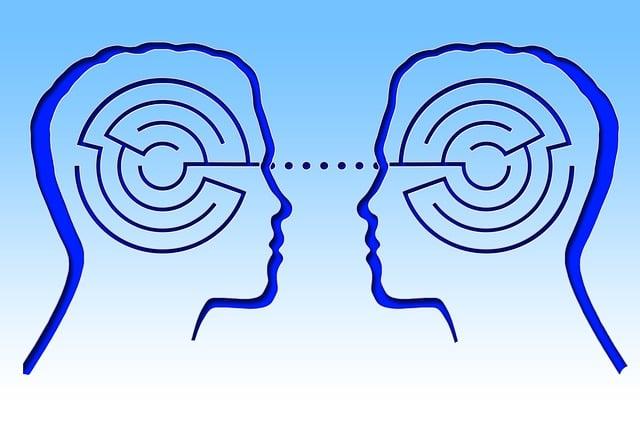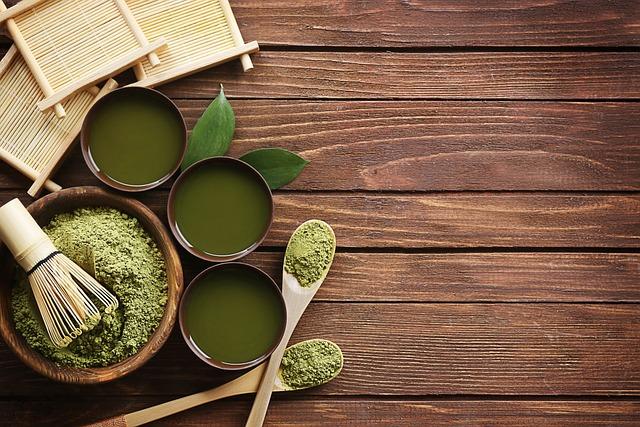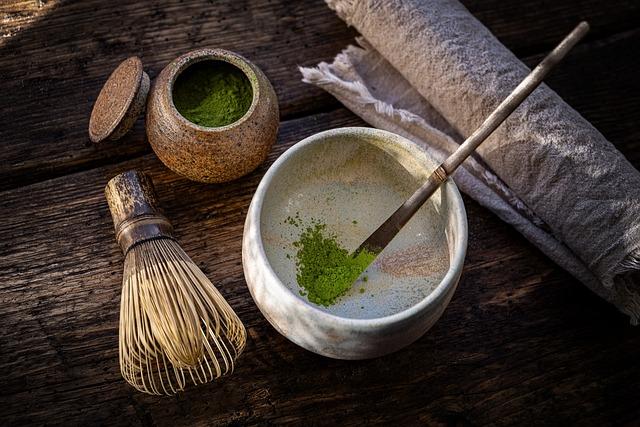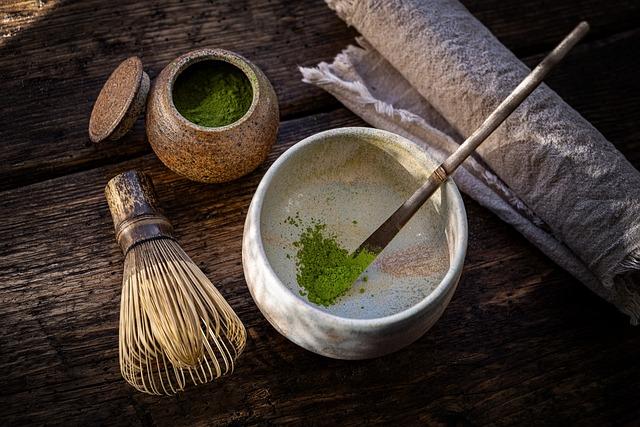Addiction Exploration: Am I Truly Addicted to Kratom?
In recent years, the use of kratom has gained significant attention as a natural remedy for various ailments including pain relief, anxiety management, and even as an aid for opioid withdrawal. While many users have hailed its potential benefits, there has been an ongoing debate surrounding the addictive nature of this herbal supplement. In this article, we aim to explore the truth behind kratom addiction, providing you with the knowledge and insights necessary to answer the burning question: “Am I truly addicted to kratom?” Whether you are a long-time user or someone considering kratom for the first time, we assure you a comprehensive and neutral analysis that will help you make informed decisions about the role of kratom in your life.
1. Understanding Kratom: An Introduction to its Properties and Effects
Kratom, scientifically known as Mitragyna speciosa, is a tropical evergreen tree native to Southeast Asia. It has gained significant popularity in recent years due to its potential therapeutic properties. This post aims to provide an introduction to kratom, shedding light on its various properties and effects.
Properties of Kratom:
- Kratom belongs to the Rubiaceae family, which also includes coffee plants.
- Its leaves contain active compounds called alkaloids, with mitragynine and 7-hydroxymitragynine being the most prevalent.
- Kratom leaves can have different vein colors, including red, green, and white, which may contribute to varying effects.
- The potency of kratom can depend on factors such as the strain, region, and processing methods.
Effects of Kratom:
- Kratom is commonly known for its stimulating and sedating effects, which can vary depending on the dosage and individual tolerance.
- Lower doses may provide increased focus, energy, and sociability, similar to moderate coffee consumption.
- Higher doses, on the other hand, might induce relaxation, analgesia, and a sense of euphoria.
- It’s important to note that the effects of kratom can differ from person to person, and responsible use is highly recommended.
Understanding the properties and effects of kratom is essential for those considering its usage. As with any substance, it’s crucial to gather relevant information and make informed decisions. The following sections will delve further into the potential benefits, risks, and legal status of kratom for a comprehensive understanding of this fascinating plant.

2. Identifying Signs of Kratom Dependency: Assessing your Relationship with the Substance
Recognizing the signs of kratom dependency is crucial to take control of your relationship with this substance. While kratom can offer various benefits, it is essential to assess whether you have developed unhealthy patterns of consumption. Here are some indicators to help you evaluate your dependency:
- Increased dosage: If you find yourself gradually increasing the amount of kratom you consume to achieve the desired effects, it may be a sign of dependency. This tolerance buildup can lead to higher dependence levels.
- Craving and inability to control use: Feeling an overwhelming urge to consume kratom, even when you initially intended not to, is a red flag. Losing control over your use and finding it challenging to cut back are clear signs of dependency.
- Neglecting responsibilities and relationships: Have you noticed a decline in your performance at work, school, or within your personal relationships? If kratom consumption has begun to overshadow your responsibilities and commitments, it is crucial to evaluate its impact on your life.
It’s important to remember that everyone’s journey with kratom is unique. If you resonate with one or more of these indicators, it doesn’t automatically imply addiction, but it serves as a signal to reassess your usage and make informed decisions moving forward.

3. The Science Behind Kratom Addiction: Unveiling the Mechanisms of Dependency
In this section, we will delve into the fascinating world of kratom addiction and explore the underlying mechanisms of dependency. Understanding the science behind kratom addiction is crucial in order to develop effective treatment strategies and address the growing concerns surrounding its use.
1. **Kratom and the Brain**: Kratom’s active components, called alkaloids, interact with specific receptors in the brain, particularly the mu-opioid receptors. These receptors are responsible for mediating pain relief and feelings of pleasure. When kratom is consumed, the alkaloids bind to these receptors, producing a range of effects including pain relief, relaxation, and euphoria.
2. **Neurochemical Changes**: Prolonged and frequent kratom use leads to neurochemical changes in the brain. The continuous activation of mu-opioid receptors disrupts the natural balance of neurotransmitters such as dopamine and serotonin. This disruption can result in adaptive changes within the brain, leading to tolerance, dependence, and addiction.
3. **Withdrawal and Cravings**: When kratom use is abruptly stopped or reduced, individuals may experience withdrawal symptoms such as anxiety, irritability, insomnia, and cravings for kratom. This highlights the addictive nature of kratom and the body’s reliance on its presence to maintain normal functioning.
By unraveling the science behind kratom addiction, we can gain a deeper understanding of its impact on the brain and body. This knowledge is essential in order to develop evidence-based interventions and support systems to assist individuals struggling with kratom addiction.

4. Recognizing the Physical and Psychological Symptoms of Kratom Addiction
Kratom is an herbal supplement that is derived from the leaves of the kratom tree, native to Southeast Asia. While it is often used as a natural remedy for pain relief and anxiety reduction, it also has the potential to be addictive. It is important to recognize the physical and psychological symptoms of kratom addiction in order to seek appropriate help and support.
Physical Symptoms:
- Weight loss or decreased appetite
- Insomnia or disrupted sleep patterns
- Muscle aches and pains
- Tremors or shaking
- Sweating and hot flashes
Psychological Symptoms:
- Increased anxiety or panic attacks
- Irritability or mood swings
- Depression or feelings of sadness
- Difficulty concentrating or making decisions
- Withdrawal from social activities or relationships
If you or someone you know is experiencing these symptoms and suspect kratom addiction, it is important to seek professional help. A healthcare provider or addiction specialist can provide guidance and support in managing withdrawal symptoms and developing a plan for recovery.
5. Seeking Help: Treatment Options for Kratom Addiction
Seeking help and exploring treatment options for kratom addiction is an essential step towards recovery. Whether you or someone you know is struggling with kratom dependence, understanding the available treatment options can provide relief and support in the journey to overcome addiction.
Here are some effective treatment options for kratom addiction:
- Detoxification: The first stage of treatment often involves detoxifying the body from kratom. This can be done under medical supervision to manage withdrawal symptoms and ensure a safe detox process.
- Inpatient Rehabilitation: Inpatient rehab programs offer a structured, immersive environment for individuals seeking recovery. These programs focus on addressing the underlying causes of addiction and providing comprehensive treatment through therapy, counseling, support groups, and education.
- Outpatient Programs: Outpatient programs provide flexibility for those who cannot commit to inpatient treatment. These programs allow individuals to receive treatment during the day, while returning home in the evenings. They typically involve counseling, group therapy, and regular check-ins with healthcare professionals.
- Individual Therapy: One-on-one therapy sessions with a licensed therapist or counselor can be incredibly beneficial for addressing the psychological and emotional aspects of kratom addiction. Therapists utilize various techniques to help patients understand their addiction, develop coping mechanisms, and establish healthier habits.
- Support Groups: Support groups, such as Narcotics Anonymous (NA), can provide an empowering and understanding community for individuals in recovery. These groups offer a safe space to share experiences, gain support, and learn from others who have overcome or are facing similar challenges.
Remember, seeking professional help and utilizing available treatment options is a crucial step towards overcoming kratom addiction. It is important to consult with healthcare professionals or addiction specialists to determine the most suitable treatment plan based on individual needs and circumstances.
6. Navigating the Road to Recovery: Strategies for Overcoming Kratom Dependency
Overcoming kratom dependency can be a challenging journey, but with the right strategies and support, it is possible to achieve recovery. Below are some proven strategies that can help you navigate the road to recovery:
- Seek professional help: Consulting with a healthcare professional or addiction specialist is crucial in developing an effective recovery plan tailored to your specific needs. They can provide guidance, offer treatments, and monitor your progress.
- Build a strong support system: Surround yourself with positive and understanding individuals who can offer encouragement and accountability. Joining support groups, such as Narcotics Anonymous or cognitive-behavioral therapy sessions, can also provide valuable peer support.
- Develop healthy coping mechanisms: Identifying and replacing prior kratom use triggers with healthy coping mechanisms is essential. Engaging in activities you enjoy, practicing mindfulness or meditation, and adopting a regular exercise routine can help manage cravings and reduce stress.
- Educate yourself: Gain knowledge about kratom dependency, its effects, and the recovery process. Understanding the psychological and physical impacts of kratom can empower you to make informed decisions and resist relapse.
- Practice self-care: Prioritize self-care by focusing on proper nutrition, quality sleep, and maintaining a balanced lifestyle. Taking care of your physical and mental well-being is vital in supporting your recovery journey.
Remember, overcoming kratom dependency takes time and effort. Celebrate small victories along the way and remain committed to the recovery process. With the right strategies and a strong support system, you can successfully reclaim control of your life.
7. Debunking Myths: Common Misconceptions About Kratom Addiction
When it comes to discussing kratom addiction, there are numerous misconceptions that often cloud people’s understanding of this substance. Let’s shed some light on some of the most common myths surrounding kratom addiction and separate fact from fiction.
Myth 1: Kratom is a highly addictive substance
Contrary to popular belief, kratom itself is not considered highly addictive. While it does contain alkaloids that interact with opioid receptors, leading to pleasurable sensations, the risk of addiction is relatively low. Kratom addiction is more often associated with excessive and prolonged use, rather than the substance itself. It’s important to note that addiction can develop from any substance when used irresponsibly.
Myth 2: Kratom addiction has severe withdrawal symptoms
Although kratom withdrawal symptoms do exist, they are typically milder compared to those associated with other opioids, such as heroin or prescription painkillers. Withdrawal symptoms may include mild discomfort, irritability, and insomnia. These symptoms usually subside within a week and can be managed with proper support and guidance.
Myth 3: Kratom leads to gateway drug use
There is no scientific evidence to support the claim that kratom use leads to the use of harder drugs. Kratom is often used by individuals seeking a natural remedy for various conditions or as a way to alleviate withdrawal symptoms from other substances. It is vital not to make unfounded assumptions or stigmatize kratom users based on this misconception.
By debunking these common myths, we hope to provide a clearer understanding of kratom addiction and its practical implications. It is crucial to gather reliable information from reputable sources and approach any substance with caution and responsibility.
8. Supporting Loved Ones: How to Help Someone Battling Kratom Addiction
If you have a loved one who is struggling with kratom addiction, it is important to offer your support and assistance during this challenging time. Here are some ways you can help:
- Be non-judgmental: Approach the situation with empathy and understanding. Avoid criticizing or blaming them for their addiction, as this can hinder their recovery process.
- Educate yourself: Gain knowledge about kratom addiction, its effects, and available treatments. This will enable you to provide informed support and guidance.
- Encourage professional help: Suggest seeking professional assistance from addiction specialists or healthcare providers. They can offer personalized treatment plans and therapies tailored to their specific needs.
- Offer emotional support: Be a source of emotional support for your loved one by actively listening and validating their feelings. Encourage open and honest communication to maintain a strong support system.
- Assist with finding support groups: Assist them in connecting with support groups or recovery communities where they can share their experiences, learn coping strategies, and gain encouragement from others in similar situations.
- Encourage healthy habits: Promote self-care activities such as exercise, proper nutrition, and engaging in positive hobbies. These habits can help reduce cravings and improve overall well-being.
Remember, supporting someone battling kratom addiction requires patience, understanding, and continuous encouragement. Your love and support can make a significant difference in their recovery journey.
9. Moving Forward: Maintaining a Healthy Lifestyle After Overcoming Kratom Dependency
Once you have successfully overcome your kratom dependency, it is essential to establish a healthy lifestyle that supports your overall well-being. Here are some practical tips and strategies to help you maintain your sobriety and lead a fulfilling life:
- 1. Stay Connected: Surround yourself with a supportive network of friends and family. Engage in healthy relationships that encourage your recovery journey.
- 2. Establish a Routine: Creating a structured daily routine can be incredibly beneficial. It provides stability and helps you stay focused, ensuring you have a clear plan for your day.
- 3. Practice Self-Care: Prioritize self-care activities that promote physical, mental, and emotional well-being. This may include regular exercise, healthy eating, getting enough sleep, and engaging in activities you enjoy.
- 4. Seek Professional Help: Consider continuing therapy or counseling sessions even after overcoming kratom dependency. A therapist can provide ongoing support, guidance, and help you address any underlying issues that may have contributed to your addiction.
- 5. Avoid Triggers: Identify and avoid situations, environments, or individuals that may trigger cravings or temptations. It’s important to establish boundaries and prioritize your recovery.
- 6. Explore Support Groups: Joining a support group, such as Narcotics Anonymous (NA), can provide a sense of community and allow you to connect with others who have faced or are facing similar challenges.
Remember, maintaining a healthy lifestyle after overcoming kratom dependency is a lifelong journey. By implementing these strategies and staying committed to your recovery, you can build a fulfilling and addiction-free life.
Conclusion
In conclusion, addressing the question of whether we are truly addicted to Kratom is a complex task that requires self-reflection and objective analysis. By exploring the various aspects and effects of Kratom use, we have gained valuable insights into its addictive potential.
It is crucial to remember that addiction is not solely determined by the substance itself but by the individual’s psychological, social, and environmental factors. While Kratom’s alkaloids can produce dependence, addiction is contingent upon an individual’s relationship with the substance, their patterns of use, and the consequences it has on their daily life.
To better understand our own relationship with Kratom, it is important to monitor our patterns of consumption, evaluate the reasons behind our usage, and be aware of the potential negative impacts it may have on our physical and mental well-being. Seeking professional guidance from addiction specialists or healthcare providers can provide valuable insights and support during this exploration.
Remember, addiction is a treatable condition, and there are numerous resources available to assist those who may be struggling. Openness, self-awareness, and a willingness to address any concerns are essential steps towards maintaining a healthy balance and ensuring that our relationship with Kratom remains in check.
Ultimately, knowledge and self-reflection are the keys to understanding addiction. By staying informed, maintaining a balanced perspective, and seeking help when necessary, we can make informed choices about our Kratom use and lead fulfilling lives free from the grips of addiction.






